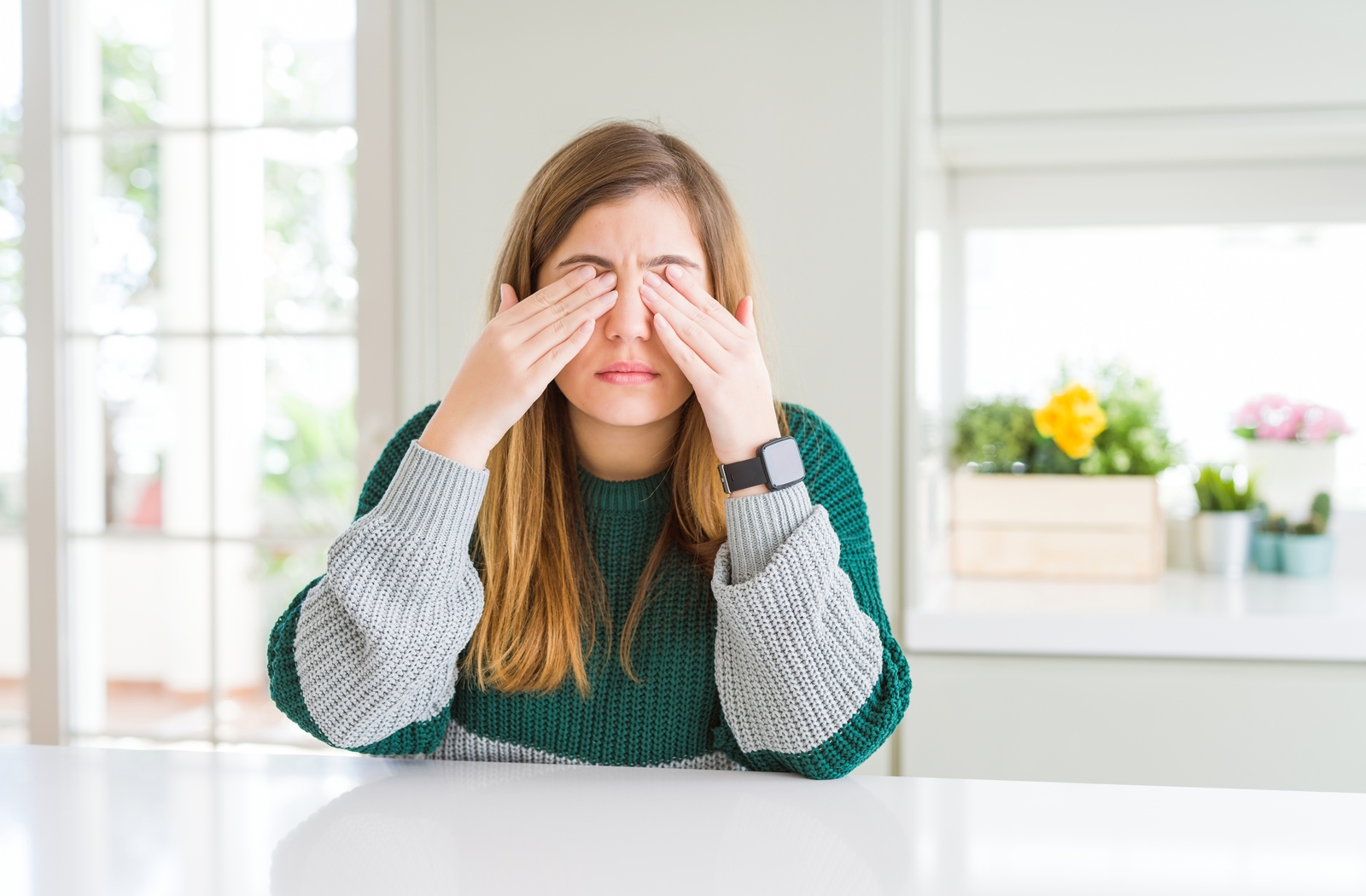Waking Up to Woe: Unveiling the Causes of Eye Pain in the Morning
Starting your day with eye pain can be a disconcerting experience. Several factors can contribute to this discomfort, ranging from dry eyes to more serious underlying conditions. This article explores the potential culprits behind morning eye pain and equips you with information to navigate this issue.
Disclaimer: It is important to note that the information in this article is for general informational purposes only and should not be a substitute for professional medical advice. The cause of your eye pain can vary significantly, and a proper diagnosis from an ophthalmologist (eye doctor) is crucial.
The Nighttime Interlude: Understanding How We Sleep on Our Eyes
During sleep, our bodies experience physiological changes that can affect our eyes. Here’s a look at some relevant factors:
- Reduced Tear Production: Tear production naturally decreases during sleep. Tears are essential for lubricating the eyes and maintaining a healthy ocular surface.
- Increased Evaporation: With eyelids partially open or incomplete blinking during sleep, tears can evaporate more quickly, contributing to dryness.
- Environmental Factors: Dry air, smoke, or allergens in the bedroom environment can further irritate and dry out the eyes.
The Morning After: Unveiling the Culprits Behind Eye Pain
Several factors can contribute to eye pain upon waking up:
- Dry Eye: This is the most common cause of morning eye pain. Dry eyes occur when there are insufficient tears to lubricate the eyes or when the tears produced are of poor quality. Symptoms include scratchiness, burning, redness, and foreign body sensation.
- Blepharitis: Inflammation of the eyelids can cause redness, irritation, crusting of the eyelashes, and morning eye pain.
- Allergies: Eye allergies can trigger itching, redness, watering, and burning of the eyes, especially if allergens are present in the bedroom environment.
- Contact Lens Use: Sleeping with contact lenses can deprive the eyes of oxygen and increase the risk of infections, leading to morning discomfort.
- Digital Eye Strain: Spending excessive time on electronic devices before bed can contribute to eye strain and discomfort that lingers into the morning.
- Underlying Medical Conditions: In some cases, morning eye pain can be a symptom of an underlying medical condition like Sjogren’s syndrome (an autoimmune disease) or certain medications.
Shining a Light on Solutions: Effective Strategies for Relief
The approach to managing morning eye pain depends on the underlying cause. Here are some potential solutions:
- Artificial Tears: Using lubricating eye drops before bed and upon waking can provide relief for dry eyes. Opt for preservative-free options if using them frequently.
- Warm Compress: Applying a warm compress to closed eyelids for a few minutes can help loosen any crusting and improve tear flow.
- Eyelid Hygiene: Gently cleaning your eyelids with a mild cleanser can remove irritants and debris that contribute to dry eye and blepharitis.
- Environmental Modifications: Use a humidifier to add moisture to the air in your bedroom and keep allergens like dust mites at bay.
- Limiting Screen Time Before Bed: Reduce screen time for at least an hour before bedtime to minimize digital eye strain.
- Proper Contact Lens Care: Always follow proper hygiene practices when handling contact lenses and remove them before sleeping.
- Consult Your Doctor: If morning eye pain persists or worsens, consult your ophthalmologist for a comprehensive evaluation and appropriate treatment plan. They can rule out any underlying medical conditions and recommend the best course of action for your specific situation.
Preventing Recurrence: Keeping Your Mornings Pain-Free
By adopting some healthy practices, you can significantly reduce the risk of experiencing eye pain upon waking:
- Maintain a Regular Sleep Schedule: Aim for 7-8 hours of quality sleep each night.
- Stay Hydrated: Drinking plenty of fluids throughout the day helps maintain tear production.
- Blink Regularly: Consciously blink more often, especially during prolonged screen use, to keep your eyes lubricated.
- Manage Eye Allergies: If you have allergies, consult your doctor about allergy medications or eye drops to manage symptoms.
- Schedule Regular Eye Exams: Regular eye checkups allow your ophthalmologist to detect and address any potential eye problems early on.
FAQ: Demystifying Morning Eye Pain
Q: My eyes feel gritty and sandy in the morning. What could it be?
A: This could be a symptom of dry eye. Artificial tears and lifestyle modifications can help alleviate these symptoms.

